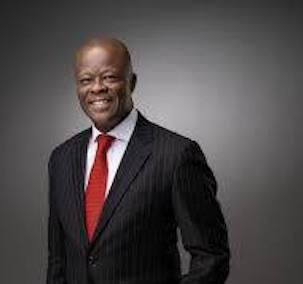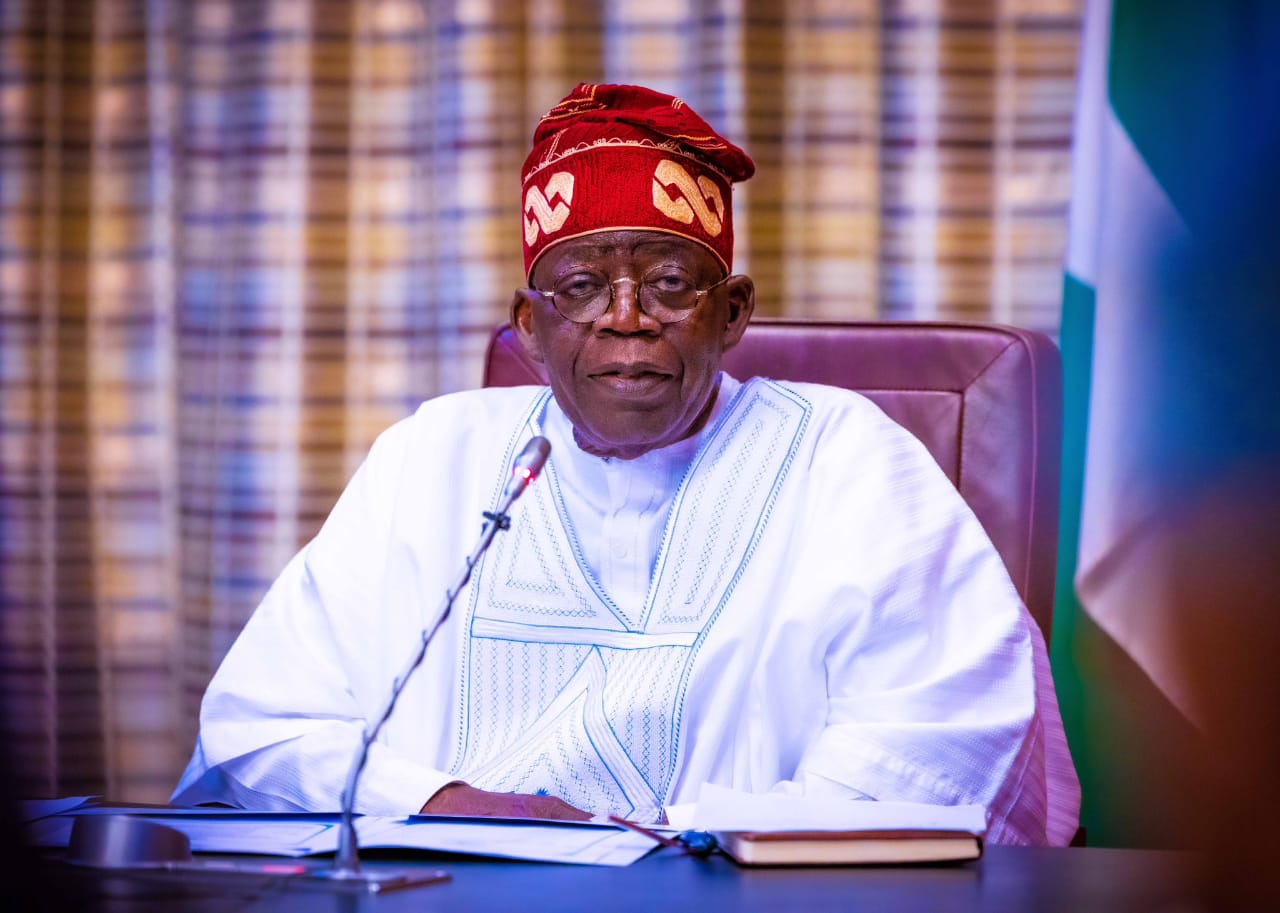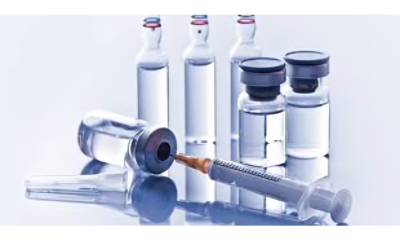COVER
FG Targets N24.5trn into Federation Account in 2024

By Tony Obiechina, Abuja
Federal Government’s revenue accruals to Federation Account is projected to rise to N24.54 trillion in 2024 from N11.86 trillion estimated in 2023, as revenue from the main pool is projected to be N20.70 trillion while Value Added Tax (VAT) pool and Electronic Money Transfer Levy (EMTL) are projected at N3.
66 trillion, and N174. 26 billion respectively.This was even as the Federation Account Allocation Committee (FAAC) shared a whopping N903.480 billion to the three tiers (FG, States and LGAs) for the month of Sept.
Director General of Budget Office of the Federation, Mr. Ben Akabueze who disclosed this on the sidelines of the 29th Nigerian Economic Summit in Abuja; gave a breakdown into the 2024-2026 Medium Term Framework and Fiscal Strategy document (MTEF).
Akabueze said the draft 2024-2026 paper was prepared against the backdrop of democratic transition to reflect current realities and new direction of President Bola Tinubu’s administration in addressing key policy and fiscal challenges.
The document showed key parameters to drive the medium-term revenue and expenditure framework for Nigeria in 2014 include: Oil benchmark:2024- $73.96; 2025- $73.76; 2026- $69.90. Oil Production (Mbps): 1.78; 1.80; 1.81. Exchange rate N/$: 700/$; 665.61/$; 669.79/$. Inflation: 21.40 per cent 20.30 percent; 18.60
Other parameters are: Non-oil GDP: Non-Oil GDP (N’bn): N223,989.2; N249,188.0; N278,251.7. Oil GDP (N’bn): 2024-N12,316.0; 2025- N13,225.7; 2026-N14,272.0. Nominal GDP (N’bn): N236,305.2; N262,413.7; N292,523.7. GDP Growth Rate (%): 3.76; 4.22; 4.78. Imports: 32,453.5; 33,401.3; 34,515.4 and Nominal Consumption (N’bn): N163,227.8; N189,992.8; N218,594.2
The projected exchange rates for the Nigerian Naira (N) against the U.S. Dollar ($) are 700 Naira to 1 Dollar in 2024, 665.61 Naira to 1 Dollar in 2025, and 669.79 Naira to 1 Dollar in 2026. These rates reflect the assumed values used for currency conversion in economic calculations.
The oil benchmark reflects the expected price of oil in the years 2024, 2025, and 2026, which increases slightly in 2025 before decreasing in 2026. Oil production is expected to increase slightly over the three-year period.
The exchange rate is expected to fluctuate, decreasing significantly in 2025 before increasing slightly in 2026 while inflation is expected to decrease over the three-year period.
Non-oil GDP is expected to increase steadily, while oil GDP is expected to increase slightly. Nominal GDP which represents the estimated total value of goods and services consumed in the Nigerian economy is expected to increase steadily, with a growth rate of around 4% each year.
Imports which are the estimated total value of goods and services imported into Nigeria are expected to increase over the three-year period, while nominal consumption which represents the estimated total value of goods and services consumed in the Nigerian economy is expected to increase steadily.
These figures indicate that Nigeria’s economy is expected to maintain steady growth over the next few years, with some fluctuations in key parameters such as the exchange rate and oil benchmark. However, there may be continued challenges with inflation and a heavy reliance on oil as a primary source of revenue.
“Accordingly, economic growth is projected to increase to 3.76 per cent, 4.22per cent and 4.78 per centin 2024, 2025 and 2026, respectively, mainly due to strong political will to take tough decisions and implement necessary reforms”, it stated.
The document added that “most of the growth in real GDP during the period will be driven by the anticipated increase in domestic oil refining capacity, telecommunications, crop production, slight growth in investment and employment, with the bulk of projected growth coming from the non-oil sector”
It noted that “the Renewed Hope Agenda (RHA) of the Tinubu Administration has significantly higher growth targets than the National Development Plan (NDP) 2021-25. The NDP is therefore undergoing a review to align its growth aspirations with the RHA”.
Consumption in nominal terms is projected to increase to N163.23 trillion in 2024 and N218.59 trillion in 2026 substantially due to expected increase in wages and cash transfers to households to mitigate the negative impact on their real income of petrol subsidy removal.
Import of goods is projected to increase to N32.45 trillion in 2024 and gradually to N34.51 billion in 2026 due mainly to the effects of depreciation of the domestic currency and imported inflation.
“Inflationary pressure is projected to continue at 21.4% in 2024. A slight reduction in inflation pressure is anticipated from 2025 and 2026 due to the lag effect of tight monetary policy on demand for goods and services, expected lower deficit financing and reduction in supply-side constraints occasioned by a drastic reduction in domestic insecurity, improved infrastructure, and generally better operating environment for businesses’”
The Federation Account Allocation Committee (FAAC) which shared N903.480 billion to the Federal Government, States and Local Government Areas (LGAs) for the month of Sept was chaired by the Minister of Finance and Coordinating minister of the Economy, Mr. Wale Edun on Tuesday at the Ministry of Finance in Abuja.
From the stated amount inclusive of Gross Statutory Revenue, Value Added Tax (VAT), Electronic Money Transfer Levy (EMTL) and Exchange Difference, the Federal Government received N320.543 billion, the States got N287.071 billion while the Local Government Councils collected N210.900 billion.
The Oil Producing States received N84.966 billion as Derivation being the 13% of Mineral Revenue allocated every month.
Also, the sum of N54.426 billion was given as cost of collection, N347,857 billion allocated to Transfers and Refunds, while the sum of N289.000 billion was transferred to Non-Oil Revenue (Savings) for the month of September 2023.
According to the communique, the Gross Revenue available from the Value Added Tax (VAT) for September 2023, was N303.550 billion, which was a decrease from the N345.727 billion distributed in the preceding month, resulting in a decrease of N42.177 billion.
From that amount, the sum of N12.142 billion was allocated for Costs of Collection and the sum of N8.742 billion given for Transfers and Refunds. The remaining sum of N282.666 billion was distributed to the three tiers of government of which the Federal Government got N42.400 billion, the States received N141.333 billion, Local Government Councils got N98.933 billion.
Accordingly, the Gross Statutory Revenue of N1014.953 billion received for the month was higher than the sum of N891.934 billion received in the previous month of August, 2023 by N123.019 billion. From that amount, the sum of N41.826 billion was allocated to Costs of Collection, a total sum of N339.115 billion for Transfers and Refunds and the sum of N211.000 was transferred to Non-Oil Revenue (Savings).
The remaining balance of N423.012 billion was distributed as follows to the three tiers of government: Federal Government was allocated the sum of N190.849 billion, States got N96.801 billion, LGCs got N74.629 billion, and Oil Derivation (13% Mineral Revenue) got N60.733 billion.
Also, the sum of N11.447 billion from Electronic Money Transfer Levy (EMTL) was distributed to the three (3) tiers of government as follows: The Federal Government received N1.648 billion, States got N5.495 billion, Local Government Councils received N3.846 billion and N0.458 billion was allocated to Costs of Collection.
The Communique disclosed that N264.813 billion from Exchange Difference, which was shared as follows: FG received N85.647 billion, the States got N43.442 billion, the sum of N33.491 billion allocated to the LGCs, and N24.233 billion given to Derivation (13% of Mineral Revenue) while the sum of N78.000 billion was transferred to Non-Oil Revenue (Savings).
Petroleum Profit Tax (PPT) and Oil and Gas Royalties increased considerably, while Value Added Tax (VAT), Import and Excise Duties, Electronic Money Transfer Levy (EMTL), Companies Income Tax (CIT) and Custom External Tariff (CET) levies recorded significant decreases.
According to the FAAC, the total revenue distributable for the current month of September 2023, was drawn from Statutory Revenue of N423.012 billion, Value Added Tax (VAT) of N282.666 billion, N10.989 billion from Electronic Money Transfer Levy (EMTL) and N186.813 billion from Exchange Difference, bringing the total distributable amount for the month to N903.480 billion.
The balance in the Excess Crude Account (ECA) as at October 24, 2023 stands at $473,754.57.ade
COVER
Nigeria’s Capital Market Key to Achieving $1trn Economy – FG

By Tony Obiechina, Abuja
Minister of Finance and Coordinating Minister of the Economy Wale Edun has emphasized the crucial role of the capital market in achieving the nation’s ambitious goal of becoming a $1 trillion economy.Edun, who spoke at the Capital Market Committee (CMC) meeting, was represented by Minister of State for Finance; Dr.
Doris Uzoka-Anite highlighted the market’s transformation since 2015, with improvements in governance structures, new products and platforms, stronger regulatory environment, and growing investor participation. According to the Minister, the Implementation of the Capital Market Master Plan (2015-2025), has been instrumental in increasing the market’s contribution to the national economy, developing a sophisticated market structure, and improving competitiveness.Edun said the revised plan prioritizes digitalization, innovation, sustainability, inclusion, and capital formation, aligning with the broader economic reform agenda.He said the passage of the new act modernizes the legal and regulatory framework, streamlines enforcement mechanisms, and provides clarity on emerging areas such as digital assets and crowdfunding.On the challenges and opportunities inherent in the Act, the Minister said, it will help deepen market participation, as well as ensure regulatory coordination remains tight.On the government’s private sector innovation in creating the needed environment for businesses to thrive, the Minister noted that the government is committed to creating an enabling environment for private sector innovation to flourish within a fair and transparent environment.The Minister added that the market is expected to contribute to the economy, serving not only for capital raising but also as a vehicle for wealth creation, economic inclusion, and long-term national resilience.He explained that, with the Securities and Exchange Commission undertaking regulatory reforms, including joining the GBMC Network of IOSCO in promoting and implementing ISSB Standards amongst others, the domestic economy has recorded the fastest GDP growth in about a decade in 2024, driven by a strong fourth quarter and improved fiscal position.Earlier in his speech, the DG SEC, Dr. Emomotimi Agama, emphasized the Commission’s commitment to regulatory reforms and capital market growth.According to him the enactment of the Investment and Securities Act (ISA) 2025 marks the beginning of a transformative new era for the capital market.Agama highlighted the Commission’s efforts to deepen engagement with stakeholders, ensure widespread dissemination and understanding of the new law, and drive innovation and compliance.He also emphasized the importance of restoring investor confidence, bringing timely relief to aggrieved investors, and creating a platform for broad-based participation of Nigerians in wealth creation.The SEC boss noted that the Commission has constituted an implementation team to thoroughly engage with every provision of the ISA 2025 and set up a dedicated sensitization team to deepen public understanding of the new law. A podcast series has also been launched to simplify the ISA 2025 and make it accessible to all Nigerians.Agama highlighted the Nigerian capital market’s impressive performance in 2024, with the NGX All-Share Index increasing by 37.65% and market capitalization growing by 53.39%. He also noted the Commission’s efforts to enhance regulatory efficiency, promote market integrity, and protect investors.The SEC boss emphasized the importance of financial inclusion and investor education, citing the Commission’s initiatives to empower women, youth, and grassroots communities. He also highlighted the Commission’s commitment to technology-driven solutions, including the launch of an e-survey to assess emerging technology adoption in the Nigerian capital market.Agama concluded by emphasizing the Commission’s commitment to fostering growth, transparency, and sustainability in the capital market, and looking forward to fruitful deliberations at the meeting.The highlight of the CMC meeting was the unveiling of the ISA Act 2025 by the minister.COVER
FG Boosts Internet Access, Rolls out $2bn Fibre Network

By David Torough, Abuja
The Presidency on Monday said Nigeria’s Communications and Digital Economy sector attracted $191m in foreign direct investment in Q1 2024, a nine fold increase from $22m in Q1 2023.The Minister of Communications, Innovation and Digital Economy, Bosun Tijani disclosed this during an interview for an upcoming State House documentary marking President Tinubu’s second anniversary.
Special Adviser on Information and Strategy to the President, Bayo Onanuga, revealed in a statement yesterday titled; “Investment in Digital Economy Grows Ninefold, Rollout Of $2 Bn Fibre Optic Infrastructure Begins Q4: Bosun Tijani. ”Tijani highlighted the sector’s robust workforce development, driven by the three Million Technical Talent programme and revealed plans for a $2bn initiative to deploy 90,000 kilometres of fibre optic infrastructure nationwide, starting in Q4 2025.“These foundational reforms, coupled with advancements in artificial intelligence and the startup ecosystem, have positioned Nigeria as a global leader in the digital economy,” Tijani stated.Comparing FDI inflows, he said, “In Q1 2023, the sector had about $22m; by Q1 2024, with this administration well underway, we reached $191m. The trend continued in Q2, increasing from $25m in 2023 to $114 m in 2024.”According to the minister, the 3MTT programme, launched in October 2023 to create a tech-savvy workforce, has already trained over 117,000 Nigerians in digital skills, surpassing its initial target of 30,000.“By last year, we had already moved that to over 117,000. With an additional 35,000 in training, the programme is nearing 10% of its 3 m goal. And in the rest of the time in office, we hope to reach three million,” he said.Regarding connectivity, Tijani announced that Project Bridge, focused on deploying 90,000 kilometres of fibre optic cable, will commence in the fourth quarter.“We are preparing a $2bn investment to ensure every Nigerian can access affordable, high-quality connectivity regardless of location. Increasing connectivity hubs by just 10 per cent could yield a 2.5 per cent GDP growth,” he said.Tijani celebrated Nigeria’s ranking among the world’s top 60 countries for AI readiness and developing a homegrown large language model.He also highlighted the launch of the AI Collective platform, supported by leading partners including Pierre Omidyar, Google, and Microsoft, to foster collaboration and innovation in artificial intelligence.For the first time in the country, the ministry has funded 55 academic researchers to explore technology applications in agriculture, healthcare, and education. In addition, N300m was invested in 10 startups using AI and blockchain to enhance agricultural productivity.On the Nigeria Startup House in San Francisco, an initiative targeting $5 billion in startup funding, Tijani said, “Our goal is to attract $5 billion in investments for Nigerian startups, supported by the Startup Pact and Trade Desk initiatives, which will connect local tech firms to global opportunities and government procurement.”Tijani revealed that over 500 government technologists have been trained in AI and Digital Public Infrastructure, and the groundbreaking Digital Economy Bill has passed its first reading in the National Assembly.To bridge rural connectivity gaps, the Minister projected that 7,000 telecom towers would be deployed, targeting 98 per cent nationwide coverage, adding that the Federal Executive Council had already approved the project.He described the progress on Right-of-Way issues as a game-changer for the country, revealing that 12 states in the federation have adopted zero-rated Right-of-Way policies.According to him, these efforts will support the National Broadband Plan’s goal of achieving 90% penetration by 2025, up from 48% in 2024.He projected the sector’s GDP contribution to rise from 16 per cent to 22 per cent, stating, “If a sector can increase its contribution by three to four per cent to the GDP, we’re about to see the economic growth we’ve not seen before. Technology allows us to bridge the gap between governments and the people.”Tijani said the government is not chasing quick wins. “The results we want to provide for Nigeria are long-lasting reforms that will transform our economy for generations to come”.COVER
Abbas Recommends Israel, Brazil, Vietnam Revenue Diversification Models

By David Torough, Abuja
Speaker of the House of Representatives, Hon. Abass Tajudeen, has declared that Nigeria’s heavy dependence on oil revenue would continue to leave its economy vulnerable, noting that agriculture remained the most viable alternative to achieving resilience.
Abass made the declaration in Abuja on Monday at a one day public hearing on some Bills seeking the establishment of agricultural colleges and institutions. Represented by Chief Whip of the House, Hon. Ibrahim Isiaka, the Speaker said it was within this context that the establishment and expansion of Agricultural Research Institutions across the country are not only necessary but strategically urgent.He said Nigeria should “Emulate countries like Israel, Brazil, and Vietnam that have attained a significant leap in agro development by investing substantially in research and development.”According to him, Brazil’s Embrapa, for instance, reengineered an infertile savannah into a global food hub, just as Vietnam’s targeted agricultural reforms pulled vast populations out of poverty, while Israel continues to innovate in arid-zone agriculture through technology-driven methods.Chairman of the House Committee on Agricultural and Institutions, Hon. Isiaq Abiodun Akinlade, recalled how in the 60s and 70s, the country was among the major exporters of agricultural produce such as cocoa, cotton, palm oil, and groundnuts.The lawmaker noted that Nigeria, with a population size of over 220 million and still growing, is desirous of more agricultural colleges and research institutions to help proffer solutions to issues, “namely climate change, insecurity, pest outbreaks, soil degradation, unskilled labourers, and livestock management.”



















